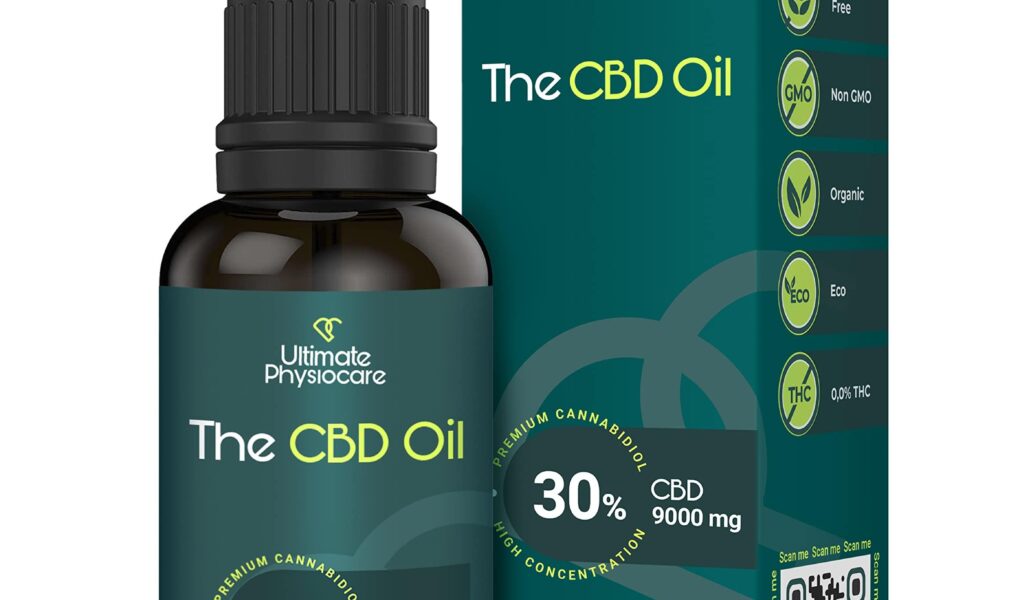In an age where wellness trends are on the rise, pet owners are increasingly exploring alternatives beyond traditional veterinary care. Among these, CBD oil has emerged as a popular topic of discussion, promising potential health benefits for our furry companions. With its roots in the cannabis plant, cannabidiol (CBD) has been hailed for its therapeutic properties in humans, but what about our pets? As we delve into the world of CBD oil for pets, we will explore its potential applications, the science behind it, and the considerations every pet owner should keep in mind. Whether you’re looking to ease anxiety in your anxious pup, alleviate joint discomfort in an aging cat, or simply enhance your pet’s overall well-being, this guide aims to illuminate the possibilities of CBD oil and help you make informed choices for your beloved companions.
Table of Contents
- Understanding the Benefits of CBD Oil for Pet Wellness
- Choosing the Right CBD Oil Product for Your Furry Friend
- Safe Dosage Guidelines and Administration Techniques
- Addressing Common Concerns and Myths About CBD Use in Pets
- Q&A
- Wrapping Up
Understanding the Benefits of CBD Oil for Pet Wellness
The rise in popularity of CBD oil for pets can be attributed to its remarkable potential in enhancing overall wellness. Many pet owners have reported positive effects on various health issues, including anxiety, pain, and inflammation. By interacting with the endocannabinoid system, CBD oil promotes a state of balance and promotes relaxation in furry companions. This natural remedy has emerged as a viable alternative to traditional medications, which often carry a risk of harmful side effects.
Some noteworthy benefits associated with CBD oil for pets include:
- Reduced Anxiety: Helps alleviate fear and stress in situations like thunderstorms or vet visits.
- Pain Management: Provides relief from chronic pain, arthritis, and joint issues.
- Improved Appetite: Stimulates the appetite in pets suffering from nausea or loss of interest in food.
- Skin Health: Promotes healing of skin irritations and can reduce inflammation.
| Condition | Potential Benefit of CBD Oil |
|---|---|
| Anxiety | Calms nervous behavior |
| Pain | Reduces discomfort |
| Appetite Loss | Stimulates hunger |
| Inflammation | Soothes skin and joints |
Choosing the Right CBD Oil Product for Your Furry Friend
When it comes to selecting the best CBD oil for your pet, it’s important to prioritize quality, as it directly impacts effectiveness and safety. Look for products that are made from organic hemp and are free from harmful pesticides and heavy metals. Certifications from third-party labs can provide additional assurance regarding the potency and purity of the oil. It’s also wise to choose full-spectrum or broad-spectrum CBD oils, as they contain additional cannabinoids and terpenes that can enhance benefits through the entourage effect. Consider the following factors when making your choice:
- Weight and Size: Adjust the dosage based on your pet’s weight to avoid over-saturation.
- Formulation: Oils, treats, and capsules cater to different preferences; pick what suits your pet best!
- Flavor: Some pets may prefer flavored oils, while others may be fine with natural options.
Another significant factor is the source of the CBD. Reputable brands will usually indicate where their hemp is grown, which can influence quality. You might even want to consult your veterinarian, especially if your pet has existing health issues or is on other medications. After considering these aspects, creating a tailored approach that meets your pet’s specific needs can enhance their quality of life. Here’s a quick comparison to help clarify some options:
| Type of CBD Oil | Benefits | Ideal For |
|---|---|---|
| Full-Spectrum | Includes all cannabinoids and terpenes for enhanced effects | Active pets needing overall wellness |
| Broad-Spectrum | Contains multiple cannabinoids without THC | Pets sensitive to THC |
| Isolate | Pure CBD without other cannabinoids | First-time users wary of full-spectrum products |
Safe Dosage Guidelines and Administration Techniques
Administering CBD oil to pets requires a careful approach to ensure safety and efficacy. It’s essential to start with a low dose and gradually increase it based on your pet’s specific needs and responses. Here are some general guidelines to consider:
- Weight-Based Dosage: A common recommendation is 1-5 mg of CBD for every 10 pounds of your pet’s weight. Start at the lower end and monitor the effects.
- Frequency: Due to its potential benefits, administer CBD oil 1-2 times daily, adjusting as necessary.
- Formulation: Choose high-quality CBD oil specifically formulated for pets to avoid harmful additives.
Alongside these dosage guidelines, employing proper administration techniques can enhance your pet’s experience. CBD oil can be given directly or mixed with their food. Here’s a quick overview of effective methods:
| Method | Description |
|---|---|
| Direct Oral Administration | Use a dropper to place the oil directly in your pet’s mouth for faster absorption. |
| Mix with Food | Add the oil to your pet’s food to mask the taste and ensure a gradual intake. |
| Treats | Incorporate CBD oil into homemade treats for a flavorful and beneficial snack. |
Addressing Common Concerns and Myths About CBD Use in Pets
Despite the growing popularity of CBD oil for pets, misconceptions still persist. One common myth is that CBD is the same as THC, the psychoactive compound in cannabis. In reality, CBD (cannabidiol) is non-psychoactive, meaning that it doesn’t induce a “high” in pets. Pet owners can rest assured that administering CBD oil will not alter their furry friends’ mental state. Additionally, some believe that all CBD products are created equal. In fact, the effectiveness and safety of CBD oil depend heavily on its quality, extraction method, and purity. It’s crucial to choose products that are specifically formulated for pets, ideally derived from hemp with low THC content.
Another prevalent concern is the notion that CBD might be harmful or lead to addiction in pets. Research suggests that CBD is generally safe when dosed properly, and pets do not develop dependency on it. Furthermore, many pet owners worry about potential side effects. While some pets may experience mild reactions, such as drowsiness or an upset stomach, these are typically minimal and often outweigh the benefits, which can include reduced anxiety, pain relief, and improved overall well-being. Here’s a handy comparison of common CBD oil myths versus the facts:
| Myth | Fact |
|---|---|
| CBD is psychoactive and will make pets high. | CBD is non-psychoactive; it does not induce a high. |
| All CBD products for pets are identical. | Quality varies; choose pet-specific formulations. |
| CBD is harmful and can lead to addiction. | CBD is generally safe with no known dependency issues. |
| CBD oil can cause serious side effects. | Side effects are typically mild and manageable. |
Q&A
Q&A: Exploring CBD Oil for Pets
Q1: What is CBD oil, and how is it different from hemp oil?
A: CBD oil is derived from the hemp plant and contains cannabidiol (CBD), a non-psychoactive compound known for its potential therapeutic benefits. In contrast, hemp oil is made from the seeds of the hemp plant and typically contains little to no CBD. While hemp oil can be beneficial for skin and coat health due to its fatty acids, CBD oil targets specific ailments and may help with anxiety, pain, and inflammation in pets.
Q2: What are the potential benefits of using CBD oil for pets?
A: Pet owners often turn to CBD oil for various reasons. It may help reduce anxiety during stressful events, such as thunderstorms or fireworks, and has been reported to alleviate symptoms of arthritis or other chronic pain. Some studies suggest that CBD oil may have anti-inflammatory properties, making it beneficial for pets with certain conditions. Additionally, it may promote a sense of calmness and improve overall well-being.
Q3: Is CBD oil safe for all pets?
A: While many pets tolerate CBD oil well, it’s crucial to consult your veterinarian before introducing it to your pet’s regimen. Factors such as species, size, age, and pre-existing health conditions can influence how your pet responds to CBD. Not all pets may benefit the same way, and some might experience adverse reactions. Your vet can provide tailored advice and suggest appropriate dosages based on your pet’s individual needs.
Q4: How do I determine the right dosage for my pet?
A: Dosing CBD oil can be tricky, as it varies by product and pet. Most manufacturers provide guidance based on your pet’s weight. A general starting point is 1-2 mg of CBD per 10 pounds of body weight. It’s advisable to start with a lower dose and gradually increase it while monitoring your pet’s reaction. Keep a diary of any changes in behavior or health to discuss with your veterinarian.
Q5: Are there any side effects to be aware of?
A: Although CBD is generally well-tolerated, some pets may experience side effects such as drowsiness, dry mouth, or diarrhea. If you notice any unusual behavior or symptoms after administering CBD oil, it’s important to consult your veterinarian immediately. Always prioritize your pet’s well-being, and consider these potential side effects when deciding to introduce CBD oil.
Q6: What should I look for when choosing a CBD oil for my pet?
A: When selecting CBD oil for pets, look for products specifically formulated for animals, ensuring they contain high-quality, full-spectrum CBD without harmful additives. Check for third-party lab testing results to verify the product’s potency and purity. This transparency helps guarantee that the oil is free from contaminants, providing peace of mind for pet owners.
Q7: Can CBD oil interact with other medications my pet is taking?
A: Yes, CBD can interact with other medications, potentially altering their effects. It’s crucial to discuss your pet’s current medications with your veterinarian before introducing CBD oil. Your vet can help assess any potential interactions and adjust dosages as necessary to ensure your pet’s safety and efficacy of treatment.
Q8: How long does it take for CBD oil to work in pets?
A: The time it takes for CBD oil to take effect can vary depending on several factors, including the pet’s metabolism, the method of administration (e.g., tincture, treats), and the condition being treated. Many pet owners report noticing effects within 30 minutes to 2 hours after dosing, but for chronic issues, it may take several weeks of consistent use before observing significant improvements.
Final Thoughts:
As more pet owners turn to CBD oil for their furry companions, understanding its potential benefits, risks, and proper usage is paramount. Always prioritize informed decisions and consult a veterinarian to provide your pet with the safest and most effective care possible. Curious about how CBD could fit into your pet’s wellness routine? A conversation with your vet might just be the purr-fect first step!
Wrapping Up
As we navigate the evolving landscape of pet care, CBD oil has emerged as a captivating option for pet owners seeking natural solutions for their furry companions. With its potential benefits ranging from anxiety relief to chronic pain management, many are turning to this hemp-derived oil in hopes of enhancing their pets’ quality of life. However, as with any supplement, it’s crucial to approach CBD oil with care—consulting with a veterinarian and understanding the unique needs of your pet are essential steps before incorporating it into their routine.
As the research continues to unfold and more stories of success emerge, it’s clear that CBD oil may hold promise for our beloved animals. Yet, with every potential remedy comes the importance of knowledge and discernment. Whether you’re considering CBD oil for your pet’s anxiety, joint pain, or overall wellness, we encourage you to stay informed, listen to your instincts, and prioritize your pet’s health and happiness above all. In this ever-expanding realm of pet care, we hope you find the perfect balance for you and your furry friend.



